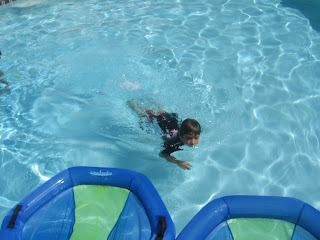
During my job search I have talked to a lot of internal marketing folks about a wide range of topics. I was amazed at how many of the issues were similar -- need for more leads, expanding markets and dissatisfaction with their PR agencies. Having worked at four agencies throughout my career (one of them twice), I know that clients always find something to be upset about (warranted or not). What really surprised me was that almost every person told me their agency had become complacent.
Really? Complacent? [kuh m-pley-suh nt] pleased, esp. with oneself or one's merits, advantages, situation, etc., often without awareness of some potential danger or defect; self-satisfied: The voters are too complacent to change the government.
I found this definition interesting because of the phrase, “often without awareness of some potential danger or defect.” It’s almost worse than being just plain lazy. How does anyone become complacent in this economic environment?
Because it seems to be a widespread problem, I decided to provide a little free advice to all those complacent agencies out there. The following ideas should sound familiar -- you just forget about them when you’re busy resting on your laurels.
1. Pay attention to what’s happening in the industry. Read articles, blogs, research, etc. What trends are emerging that your client can address? What’s not being covered?
2. Check out your client’s competitors. What piece of the story do they not have that your client does? Who is covering the competition that should be covering your client?
3. Read your client’s content. Blogs, white papers and customer stories are all good sources of new pitches.
4. Listen. What issues come up on every client call that you haven’t addressed? What’s on the wish list that you could tackle?
5. Dust off your annual plan or the pitch you used to win the business. What did you promise that hasn’t happened?
And one more for good measure….
Remember there is someone out there who is desperate for a new client and is willing to do what you do for less money, and willing go out of their way to prove it.


